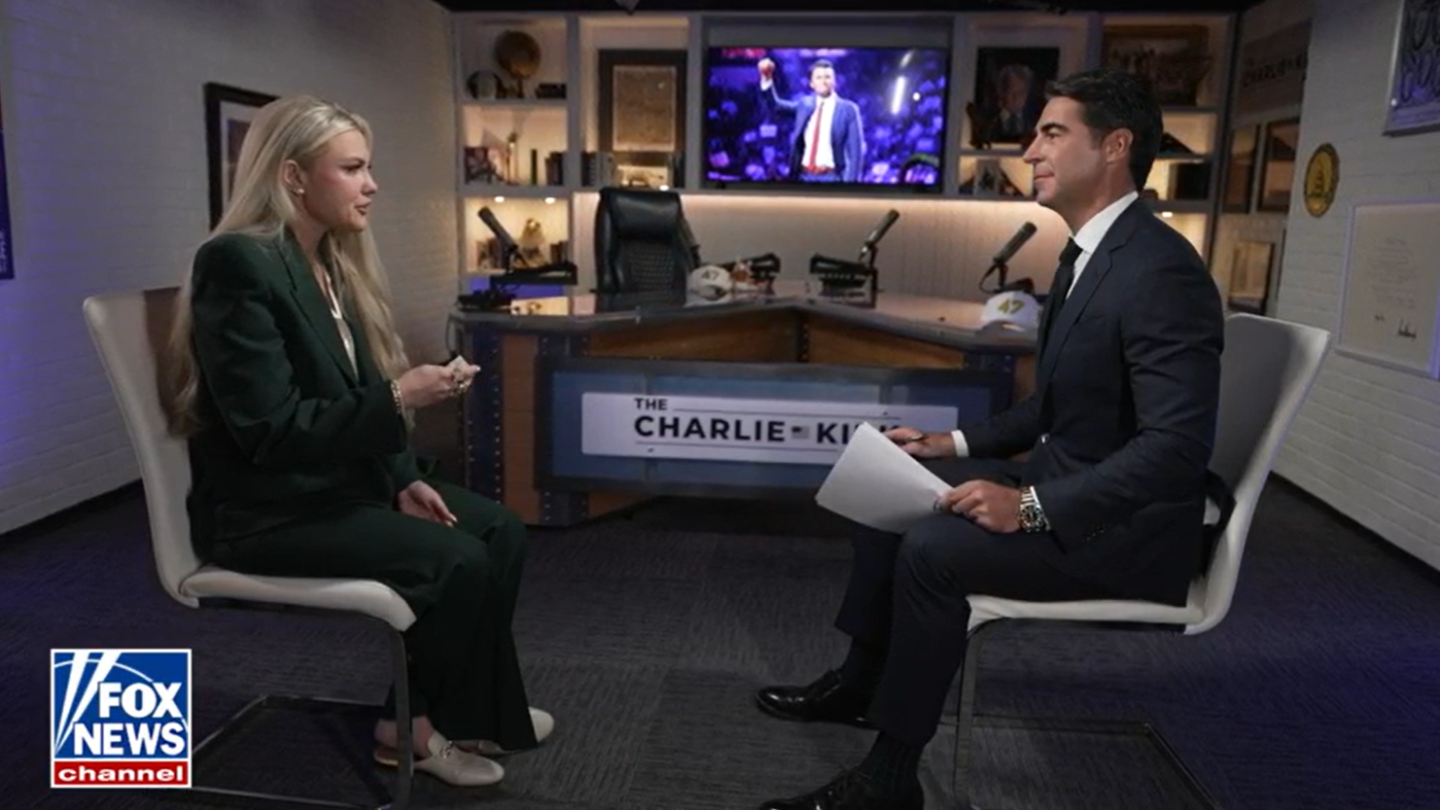Sinclair Reached Out to Charlie Kirk’s Widow Amid Jimmy Kimmel Suspension: “How Can We Make It Right?”
When ABC suspended Jimmy Kimmel Live! following the late-night host’s controversial comments about the reaction to Charlie Kirk’s assassination, the network faced not just a PR crisis — but a financial one.
In a previously unreported twist, Sinclair Broadcast Group, one of ABC’s most influential affiliate owners, reached out directly to Erika Kirk, the widow of conservative activist Charlie Kirk, to ask a simple but telling question: “How can we make it right?”
Erika revealed the exchange in an interview with Fox News’ Jesse Watters, airing this week. “They asked me, ‘Do you want Jimmy to give you an apology? Do you want to be on a show?’” she said. “I told them — thank you, but this isn’t my mess. If he wants to say he’s sorry to someone who’s grieving, that’s on him. But if it’s not in his heart, don’t do it.”
Kimmel’s brief suspension was driven in large part by Sinclair and Nexstar, two major station groups that publicly condemned his remarks and even threatened to preempt his show in several markets. The standoff pushed ABC’s leadership into a delicate balancing act — one that revealed just how powerful local affiliates remain in shaping national broadcast decisions.
When Kimmel returned to the air the following week, his tone was reflective. “It was never my intention to make light of a young man’s murder,” he said in a somber monologue. “If people felt I did, I understand that. I would probably feel the same way if the roles were reversed.”
Sinclair later confirmed that it had been in discussions with Disney and ABC about “measures to strengthen accountability and community dialogue,” including the idea of appointing an independent network ombudsman — a proposal Disney ultimately declined.
The Business Fallout: How Outrage Became Broadcast Currency
Sinclair’s outreach to Erika Kirk wasn’t just about optics — it was about mitigating financial damage in a media landscape where outrage now directly impacts revenue, ad trust, and investor confidence.
“Affiliate groups like Sinclair and Nexstar hold enormous leverage over networks,” explained Michael Nathanson, media analyst at MoffettNathanson. “When they preempt programming, it doesn’t just send a message — it hits ad sales, ratings, and Wall Street sentiment.”
Every minute of lost airtime has a cost. Nielsen data shows that a single week of preempted late-night programming can wipe out $3–4 million in advertising commitments, especially when controversy drives advertisers to pause campaigns. For affiliates, many of which rely on regional ad partners, that means tense calls from local business owners wary of backlash or boycotts.
For ABC’s parent company Disney (NYSE: DIS), which has faced investor pressure over politically charged programming in recent years, even brief suspensions like Kimmel’s can raise red flags among shareholders who track brand stability.
But Sinclair’s strategy also reflects a new playbook in corporate crisis response: control the narrative before the market does. By reaching out to Erika Kirk, Sinclair positioned itself as both empathetic and proactive — reinforcing its “community-first” image among conservative-leaning audiences that form a key share of its local advertising base.
For consumers, the ripple effect is subtle but real. As media companies tread carefully between free speech, public sentiment, and advertiser comfort, it shapes what viewers ultimately see — and what they don’t. Programming decisions are now influenced as much by economic risk modeling as by editorial judgment.
In other words: every apology, every suspension, and every headline about “accountability” carries a price tag.
The Bigger Picture: Trust, Revenue, and the Future of Network TV
Sinclair’s proposal for an independent ombudsman may have sounded bureaucratic, but behind it lies a serious financial concern: trust translates to revenue. As streaming competition intensifies, traditional broadcasters can’t afford to alienate core demographics.
For Disney and ABC, this controversy is another reminder that brand reputation is now a balance sheet item. Every viewer lost to polarization is a data point Wall Street tracks closely.
The takeaway for viewers and investors alike? The modern entertainment economy runs on more than ratings — it runs on perception. And perception, once broken, can take years to rebuild.
In today’s world, the business of television isn’t just about what’s funny, trending, or viral. It’s about who feels seen, who feels heard, and who decides when a joke crosses the line. For everyday audiences, moments like this highlight how the intersection of morality and money shapes what shows stay on air — and why apologies matter not just emotionally, but economically. Behind every late-night controversy, there’s a calculation: how much trust can a brand afford to lose?














